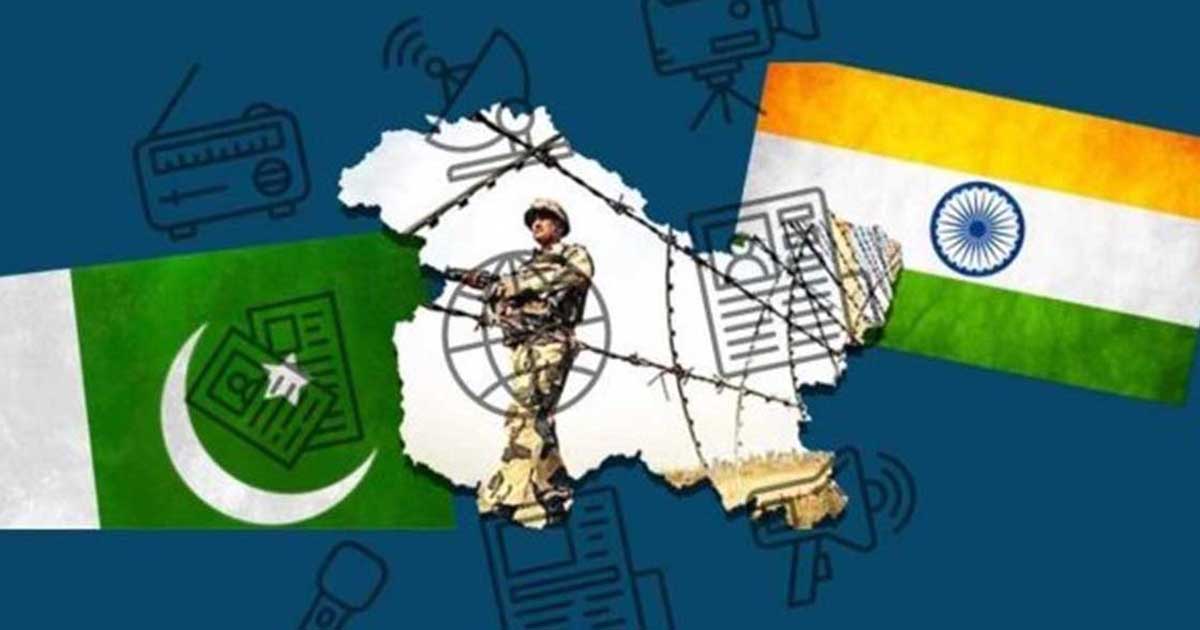
by Hammad Baloch 20 July 2023
19th holds deep historical significance in the tumultuous journey of Jammu and Kashmir, a region grappling with the complexities of its political destiny. On this momentous day in 1947, the Kashmiri people made a fateful decision, binding their aspirations with Pakistan. This resolution was a powerful testament to the shared religious, cultural, and geographical ties between the two regions and their people. Over the past seven decades, Kashmiris have paid a heavy price, with around 500,000 lives sacrificed in their fight for freedom from Indian occupation and to maintain their unwavering connection to Pakistan. Today, as we commemorate this historic day, it is crucial to understand the deep-rooted emotions and desires that drive the Kashmiri people’s struggle for self-determination.
The Historical Resolution and the Spirit of Kashmiri Identity
The All–Jammu and Kashmir Muslim Conference, during an emergency convention in Srinagar, unanimously adopted the historic resolution on July 19, 1947. The resolution called for the accession of Jammu and Kashmir to Pakistan, drawing on the existing religious, geographical, cultural, and economic proximity to the neighboring nation. The Kashmiri people believed that this move was essential to safeguard their political, religious, social, and economic rights, given the prevailing animosity from the Hindu majority in Jammu and Kashmir. However, despite their unity and political stance, the aspirations of the Kashmiri people were betrayed when the ruling Hindu Maharaja, Sir Hari Singh, chose to accede to India with the support of Prime Minister Jawaharlal Nehru and Governor General Lord Mountbatten.
Kashmir Under Indian Occupation: A Long Struggle for Justice
The resolution of July 19, 1947, set the stage for an enduring struggle against Indian occupation. India’s invasion of Srinagar on October 27, 1947, marked the beginning of a harrowing chapter in Kashmir’s history. The Indian armed forces brutally occupied Jammu and Kashmir, defying the Partition Plan and the will of the Kashmiri people. In the face of aggression, Pakistan responded by supporting the Kashmiri cause militarily, which eventually led to the intervention of the United Nations Security Council. UN resolutions were passed, calling for a plebiscite to determine the region’s future. Regrettably, India reneged on its promise to hold the plebiscite, leaving the Kashmiri people disillusioned and trapped in a quagmire of uncertainty.
Kashmir: A Bleeding Wound on the Subcontinent
As Kashmiris continued their struggle for self-determination, the region became a flashpoint of tension between India and Pakistan. The dispute over Kashmir remains an unfinished agenda of the 1947 partition, with Pakistan firmly standing by the Kashmiri people’s aspirations. The emotional attachment of the Kashmiri people to Pakistan goes beyond geopolitical considerations. It is rooted in a deep sense of kinship, shared history, and the Islamic faith that binds them together. Despite facing Indian military aggression and state-sponsored terrorism for decades, the Kashmiri people have maintained their determination to be free and united with Pakistan.
India’s Repressive Policies: An Assault on Kashmiri Identity
In recent years, India’s Hindutva government has escalated its efforts to suppress the Kashmiri voice and alter the region’s demographic composition. The unilateral abrogation of Articles 370 and 35A of the Indian Constitution in August 2019 was a gross violation of international law and a blatant attempt to erode the special status of Jammu and Kashmir. By granting domicile status to non-Kashmiris in Jammu, India aims to alter the Muslim majority, thereby manipulating any future plebiscite in its favor. These actions have perpetuated a vicious cycle of violence and human rights abuses, further deteriorating the situation in the region.
The Call for Global Solidarity
As the Kashmiri people continue their struggle, they look to the international community for support and solidarity. The United Nations has a vital role to play in addressing India’s violations of international law and holding it accountable for its actions in Jammu and Kashmir. The UN resolutions that promised a plebiscite under its auspices must not be ignored, and the world community must stand together in advocating for a just and peaceful resolution to the Kashmir dispute.
Conclusion
The historical resolution of July 19, 1947, remains a poignant reminder of the Kashmiri people’s aspirations for freedom and self-determination. The world must recognize and acknowledge their struggle, and work collectively to alleviate their suffering. It is time for the international community, especially the United Nations, to take a decisive stand and ensure that the rights and aspirations of the Kashmiri people are respected and upheld. Only through global solidarity and a commitment to justice can we pave the way for a peaceful future where the people of Jammu and Kashmir can determine their own fate and forge a prosperous path alongside Pakistan, their cherished neighbor. As we honor the memory of July 19th, let us renew our resolve to stand with the Kashmiri people in their quest for a just and lasting solution to the Kashmir dispute.
